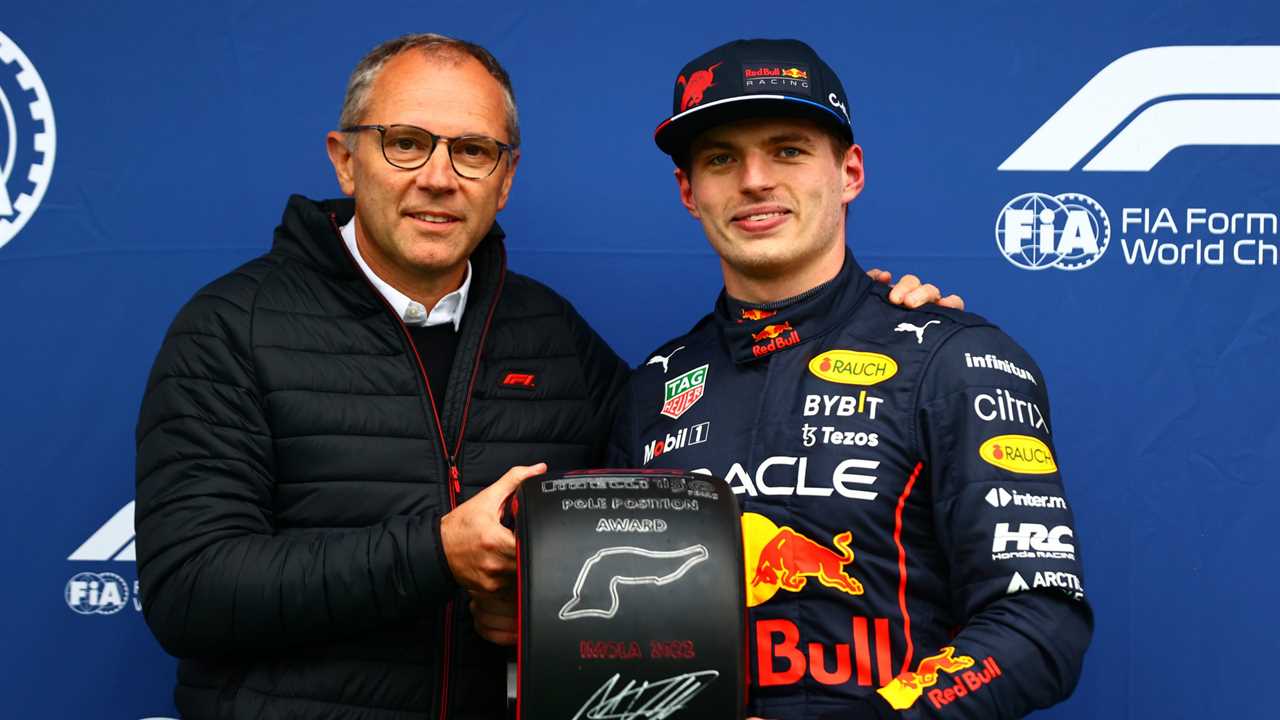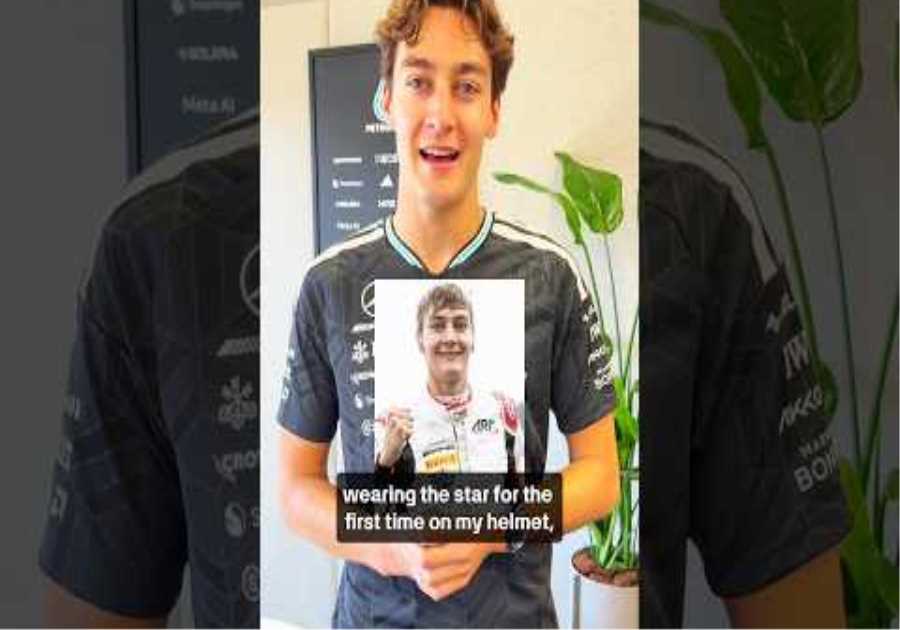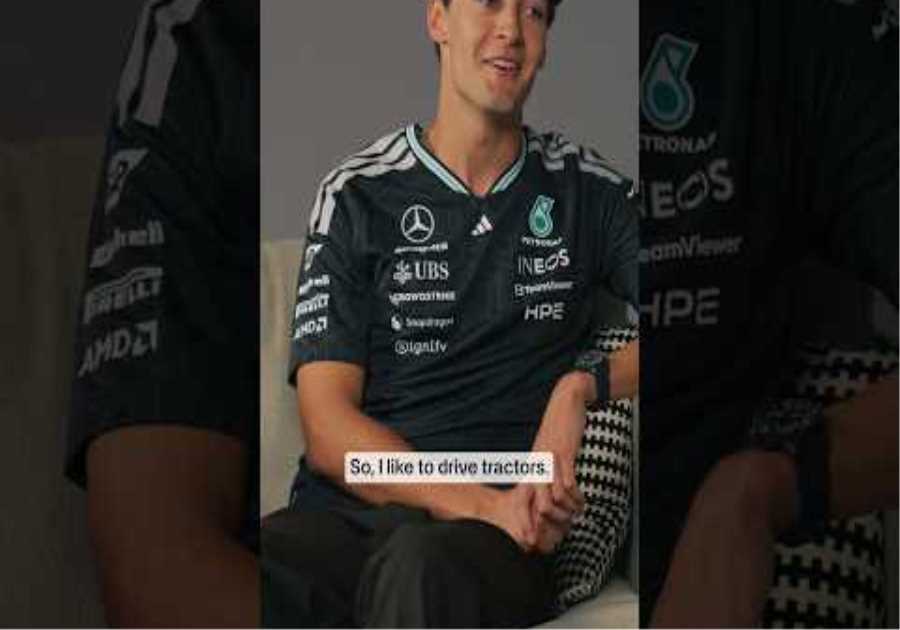
Max Verstappen returns after a summer break knowing he does not have to win any of the nine remaining races to clinch his second driver’s title.
Second in each would be enough no matter how Ferrari’s Charles Leclerc performs. That said, during a state of the Union address Formula One chief executive Stefano Domenicali reminded the audience how Kimi Raikkonen overcame a 17-point deficit in the final two races of 2007 to win the championship when only 20 points were available.
Never say never was the message alongside other talking points including the shape of the F1 calendar in the years ahead, the expansion of the race weekend to embrace more sprint races, the push for female participation, and the future of Monaco, China and Saudi Arabia .
A Verstappen victory is not inevitable
“From the commercial perspective, I would love to see another season where you arrive at the last lap of the last race, without the controversy maybe. That would be fantastic,” Domenicali said.
“Eighty points (deficit) is a lot but from my previous experience, Kimi won in Brazil when no-one expected that. I don’t see why Ferrari cannot take the fight to Red Bull. They should not give up until the last moment.”
Verstappen holds an 80 point lead over Charles Leclerc in the standings (Photo: AFP)
Domenicali was the team’s sporting director when Ferrari emerged from the McLaren espionage rumpus to fashion a most unlikely victory in 2007 over the team who had received illegal dossiers on the car’s design.
While Domenicali is keen to remain impartial he is right to claim that it is in the interests of all that Ferrari make a fist of the concluding races. “We are going to have a lot of surprises,” he said.
The F1 calendar to be set at a maximum of 24 races, but which venues will get the nod?
Like the majority of the traditional venues, Belgium is under threat from ambitious nations prepared to pay a rate the old circuits cannot afford. Domenicali said he expected his office to be host to many meetings this weekend with Belgian officials seeking assurances that this will not be the last race at Spa.
For Belgium read France, Germany and Italy all of whom are balancing the desire to host races with the costs of doing so. In Domenicali, they have a friend but not at any cost. “There is a lot of respect for these places. At Monza this year there will be the celebration of the hundredth Italian Grand Prix. It will be a terrific event but I have always said this to them, you need to make sure that history is not enough. We need to invest.
“Monza needs to do its job, update a place that is iconic and look ahead. But be assured tracks like these will always be a part of the discussion but they cannot take for granted that if they do nothing they will always be there.”
Domenicali set the limit for the calendar at 24. Demand outstrips supply. Domenicali outlined a compromise that essentially sees new circuits subsidising the old with traditional venues like Belgium, Italy, France and Germany appearing in alternate years.
F1 targets women drivers but when can we expect a female on the grid?
A female driver in F1 is the ultimate goal for a racing series with a growing female fan base.
Domenicali restated F1s commitment to developing the pathways for female involvement and to broaden participation in a way that would place a woman in an F1 car on merit. This requires a focus on the younger age groups feeding through F3 and F2.
Related Stories
How Lewis Hamilton is driving forward opportunities for women in motor sportAugust 05, 2022
“We believe it is crucial to give women the maximum opportunity for women to come to F1. We are trying to understand how we can prepare the right parameters for girls to come to F1 at the right age in the right car. This is the key point.
“We are happy with the collaboration with Formula W (W Series), but we believe in order for girls to be at the same level of competition they need to be at the same age as the guys when they get to F2 and F3. We are working on that to improve the system. You will see some action on that soon.
“But it is unlikely we will see a girl in F1 in the next five years.”
Sprinting into the future
Not only does F1 want to push for more sprint races, aiming for six next season, it wants more sessions to be competitive.
The standard division of weekends outside of sprint races involves three practice sessions before qualifying and the race. At sprint weekends, the practice sessions drop to two.
An idea under consideration is race weekends will feature only one practice session per weekend and the rest would boast some kind of jeopardy.
“We want to discuss how to make some corrections to the sprint format and other ideas. I would like to see every session go towards something. This is something I am really keen to discuss with the drivers and the teams because this would add to the intensity everyone wants to see when they are around the track,” Domenicali said.
The future of the Monaco Grand Prix and what next for China and Saudi Arabia
Doubts about the viability of Monaco resurfaced earlier this year with the understanding that the race could be sacrificed without changes to its circuit and infrastructure. Though talks are ongoing F1 is confident it will get the assurances it needs to confirm Monaco’s place on the calendar in the coming weeks.
More from formula 1
China is expected to return to the calendar as soon as Covid restrictions allow. Saudi Arabia is also safe for now despite the terror attacks in March that almost forced the cancellation of the race.
Despite the appalling human rights records of China and Saudi Arabia, Domenicali justifies their inclusion on the grounds that participation is subject to promises of change being met.
“I believe the Saudis will be part of the future because they are pushing strongly to change what they believe is the right way to move forward. You cannot expect a millennial culture to move from day to night. We will make sure what they promised will be delivered. Otherwise things will be different.”






